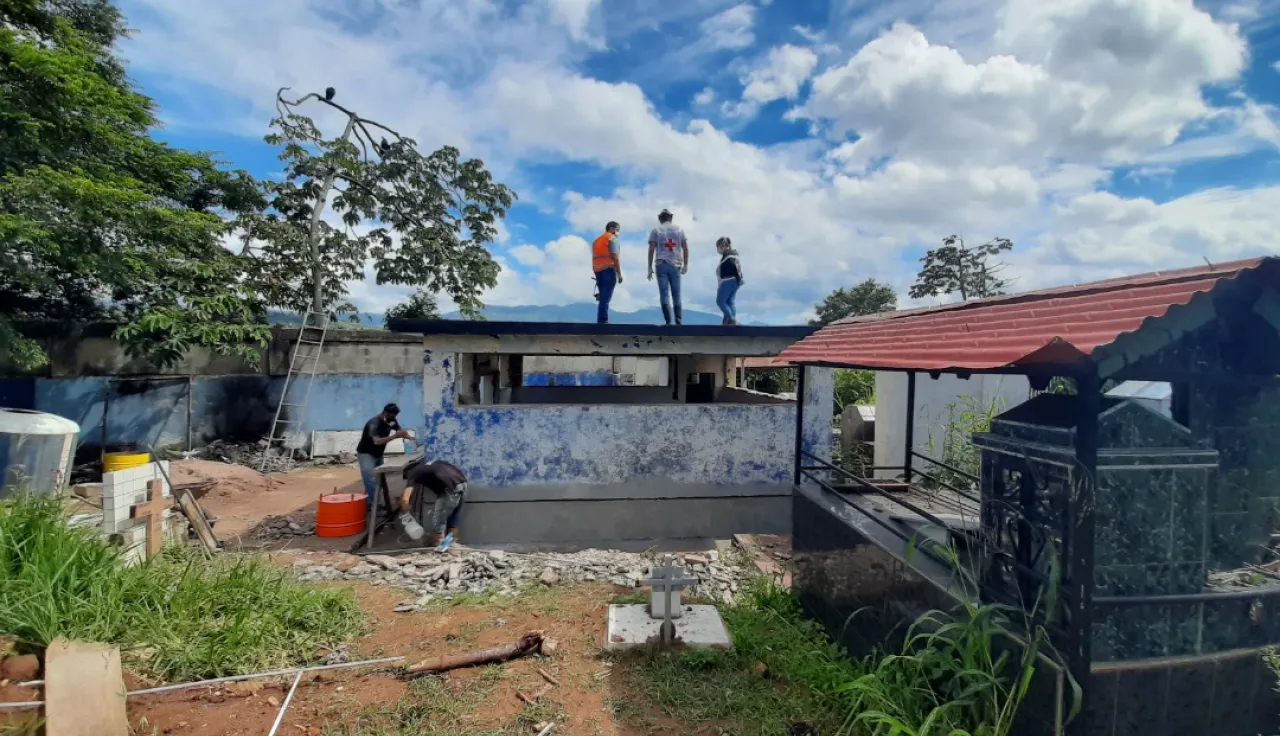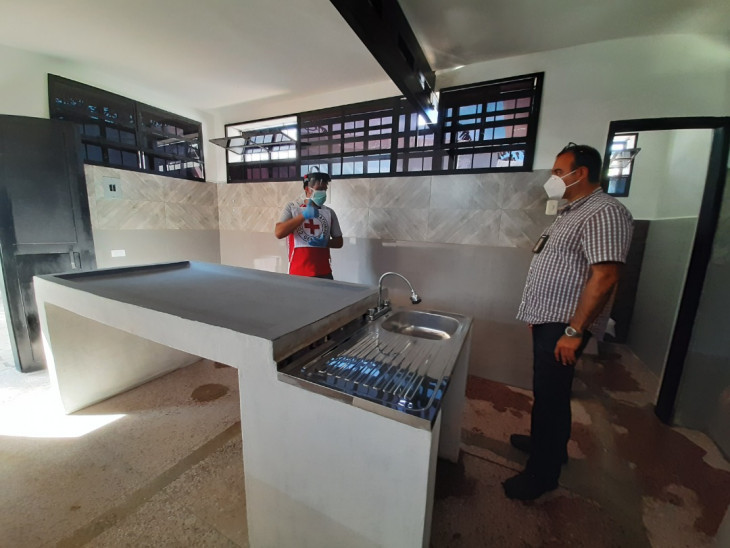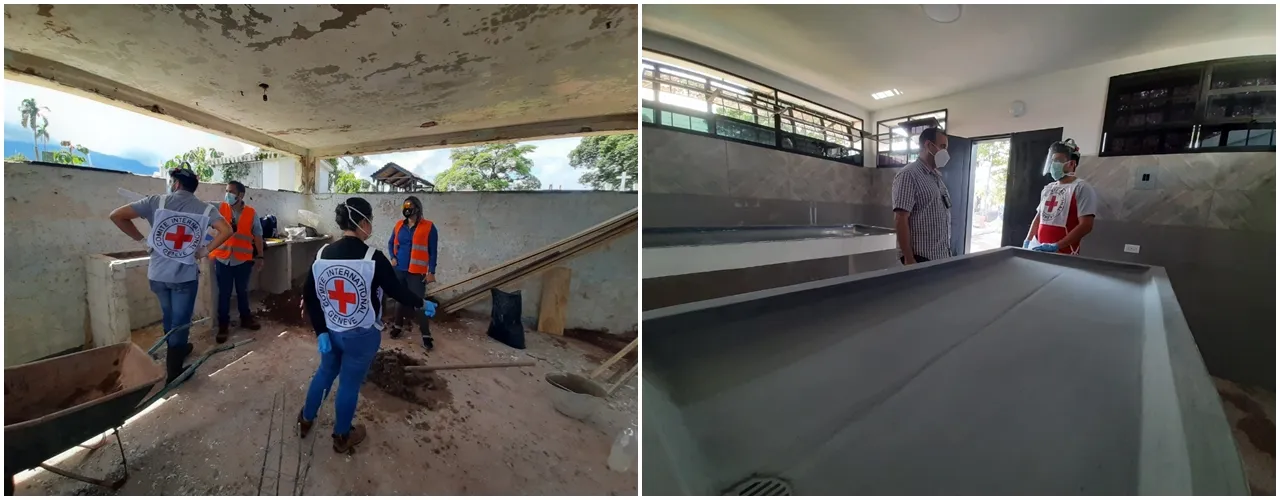Venezuela: Renovating forensic facilities to ensure dignity for the dead

"I get really sad when I think about the hardest things about my job. It's never easy recovering a dead body, especially if it's a child, but the chance to give family members some peace of mind is the real reason I carry on working here," says Gustavo, with a lump in his throat.
We think about the grieving families, but behind the scenes are those who are directly involved in handling their loved one's remains: forensic odontologists and anthropologists, doctors, and so on. It is they who help to bring down the number of people recorded as missing by identifying and correctly handling the bodies.
Gustavo Omaña has been a forensic odontologist for ten years, 18 months of which he has spent as the municipal head of the National Service of Medicine and Forensic Sciences (SENAMECF) in San Cristóbal, Táchira State, close to the border with Colombia. Despite the poor working conditions, he had to endure before the recent renovations, Gustavo has never lost his passion for soothing the pain and easing the suffering of those who have lost loved ones. When families find themselves at a morgue, they need someone who can be both a friend and a professional, telling them the words they need to hear and ensuring their loved ones are treated with respect.
Every human being, no matter their situation or condition, deserves to be treated with dignity. This does not change when someone loses their life; their remains must be treated with just as much respect. That is why the ICRC, through our forensic specialists, works worldwide to ensure that dead bodies are protected and treated respectfully. One of our humanitarian tasks in this regard is renovating places where these specialists work so that they can carry out their tasks in clean and safe conditions that safeguard everyone's health and dignity.

"Thanks to the renovations, both the dead bodies and ourselves will get a bit more dignity, and family members, who have to go through such a hard time, will see that the deceased are getting the respect they deserve," says Gustavo.
Working with the SENAMECF in San Cristóbal, the ICRC renovated the secondary morgue in the city's municipal cemetery. This included making structural repairs; waterproofing the roof; redoing the façade; installing windows, gates and doors; putting up fences; putting in two autopsy tables with a sink, tap and drain; fitting a thousand-litre water tank; and improving the water and electricity systems by fitting a seven-thousand-watt generator. In addition, we built a cold room in the city's main morgue and carried out maintenance work on the refrigerated mortuary cabinets, which will help forensic staff in their work considerably.
If we were motivated before, seeing this renovated morgue and the new equipment is going to motivate us even more.

Although forensic work is hard, Gustavo's greatest wish is to be able to work in physical conditions that are dignified and enable him to ease the suffering of the families who have to come to the morgue. "Now that we can work in better conditions, everyone will see how much better our forensic work is going to be in Venezuela," he says with pride.
In the field of forensics and the fight against COVID-19 in Venezuela, the ICRC has:
• distributed 101,446 forensic supplies
• trained 172 health and forensic workers in dead body management
• provided advice, recommendations and guidelines for managing dead bodies to 23 forensic institutes and health centres in Venezuela.



